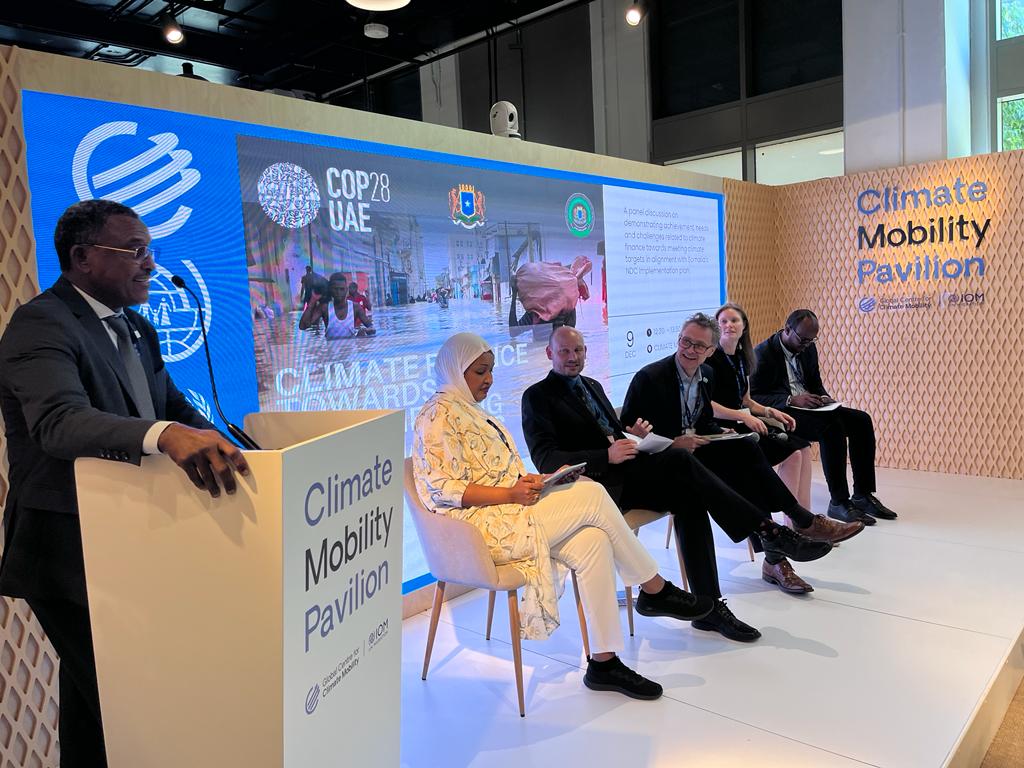Somalia’s Minister of Environment and Climate Change chairs Climate Action Africa panel discussion at COP28
On December 9th, 2023, the government of Somalia, with support from the Climate Action Africa team, hosted a side event on climate finance in achieving Somalia’s NDC in Dubai at COP28.
Somalia is one of the most vulnerable countries in Sub-Saharan Africa to the impacts of climate change. The Government of Somalia has submitted its updated National Determined Contribution (NDC) to the United Nations Framework Convention on Climate Change (UNFCCC). In its NDC, Somalia aims to reduce its emissions by 30 % in 2030 relative to the base year 2015. For adaptation, Somalia aims at enhancing adaptive capacity, strengthen resilience, and reduce vulnerability to climate change through mainstreaming climate adaptation to into sustainable development.
The Government of Somalia officially launched the NDC implementation plan at COP28, which addresses several key issues – including climate financing. Somalia’s NDC financing needs have been reflected in the country’s commitment to addressing climate change through a comprehensive framework that prioritizes mitigation and adaptation strategies.
Climate Action Africa (CAA) will provide technical assistance to the Ministry of Environment and Climate Change to develop a national climate finance strategy aimed at enabling future investments and planning in support of Somalia’s climate efforts.


The side event “Climate Finance Towards Implementing Somalia’s NDC” brought together representatives from Global Affairs Canada, the office of Somalia’s Prime Minister, the African Development Bank and the NDC Partnership initiative as an opportunity to strengthen partnerships and collaboration with regional and international organizations.
CAA’s Project Director, Jaime Webbe, said that the national climate finance strategy should deliver funding solutions for both adaptation and mitigation while considering the risk of investing in climate action in Somalia due to political and environmental instability, making developing a risk strategy imperative.
“Understanding how to build a robust and very forward-looking risk management mechanism into the climate finance strategy is going to be critically important, “she said.
Webbe also emphasized that supporting domestic technology development will play a crucial role in implementing the country’s NDC with the involvement of the private sector.
“If we’re going to have sustainable climate finance, we need to be investing in domestic technologies, not asking the question of who’s funding the program -this requires a specific investment strategy for domestic technologies.”
Read more about the Implementation Process of the Climate Finance Strategy here.



